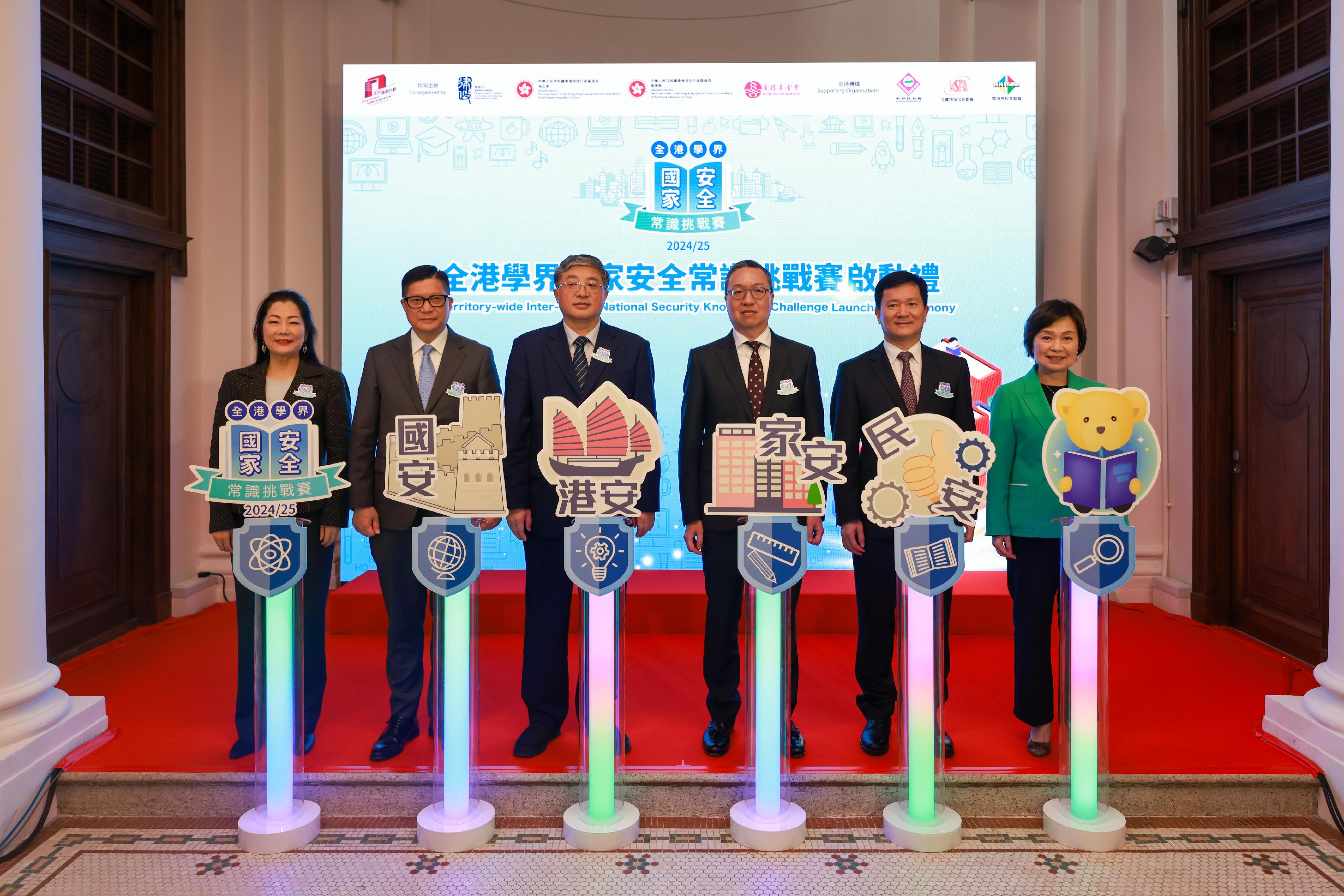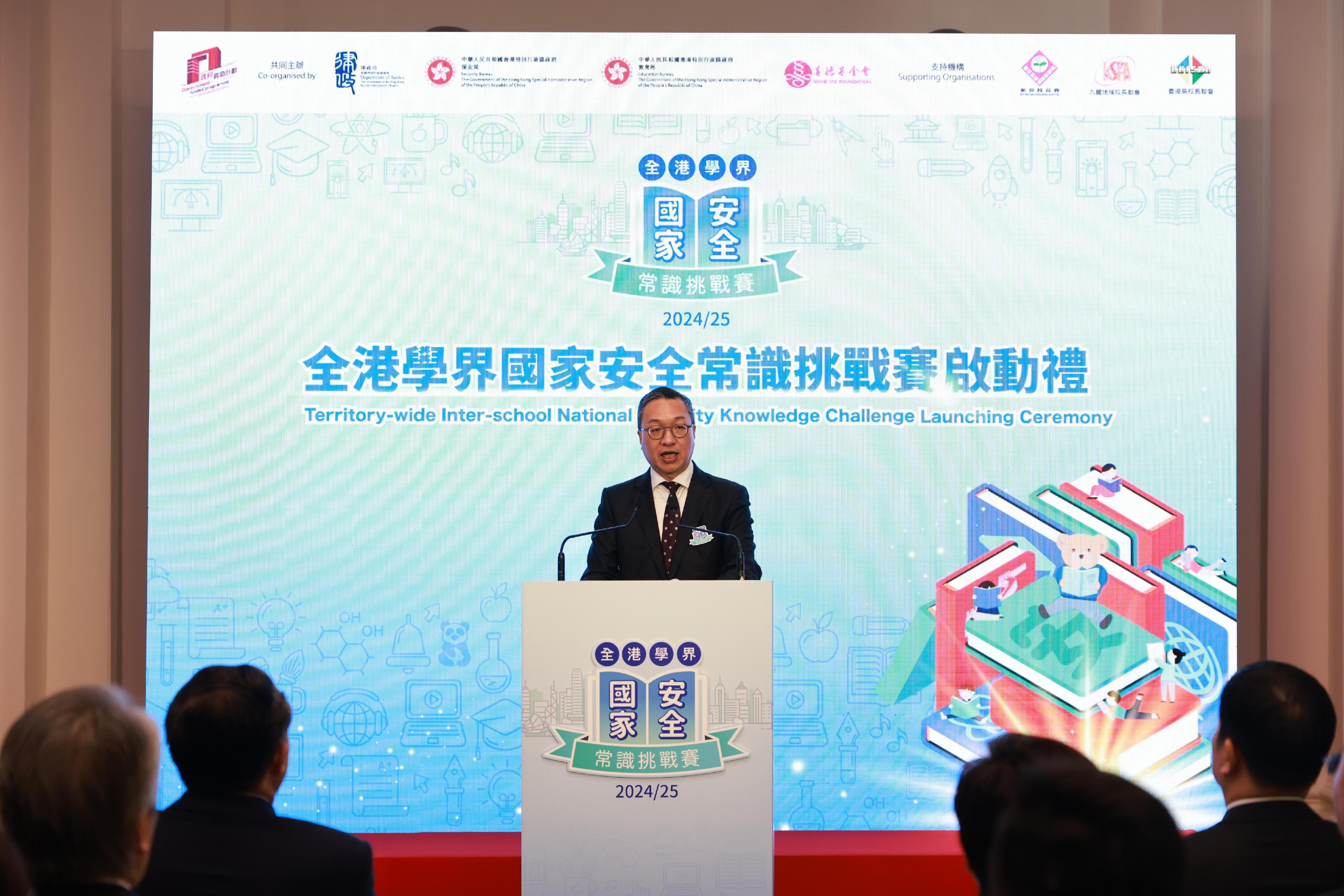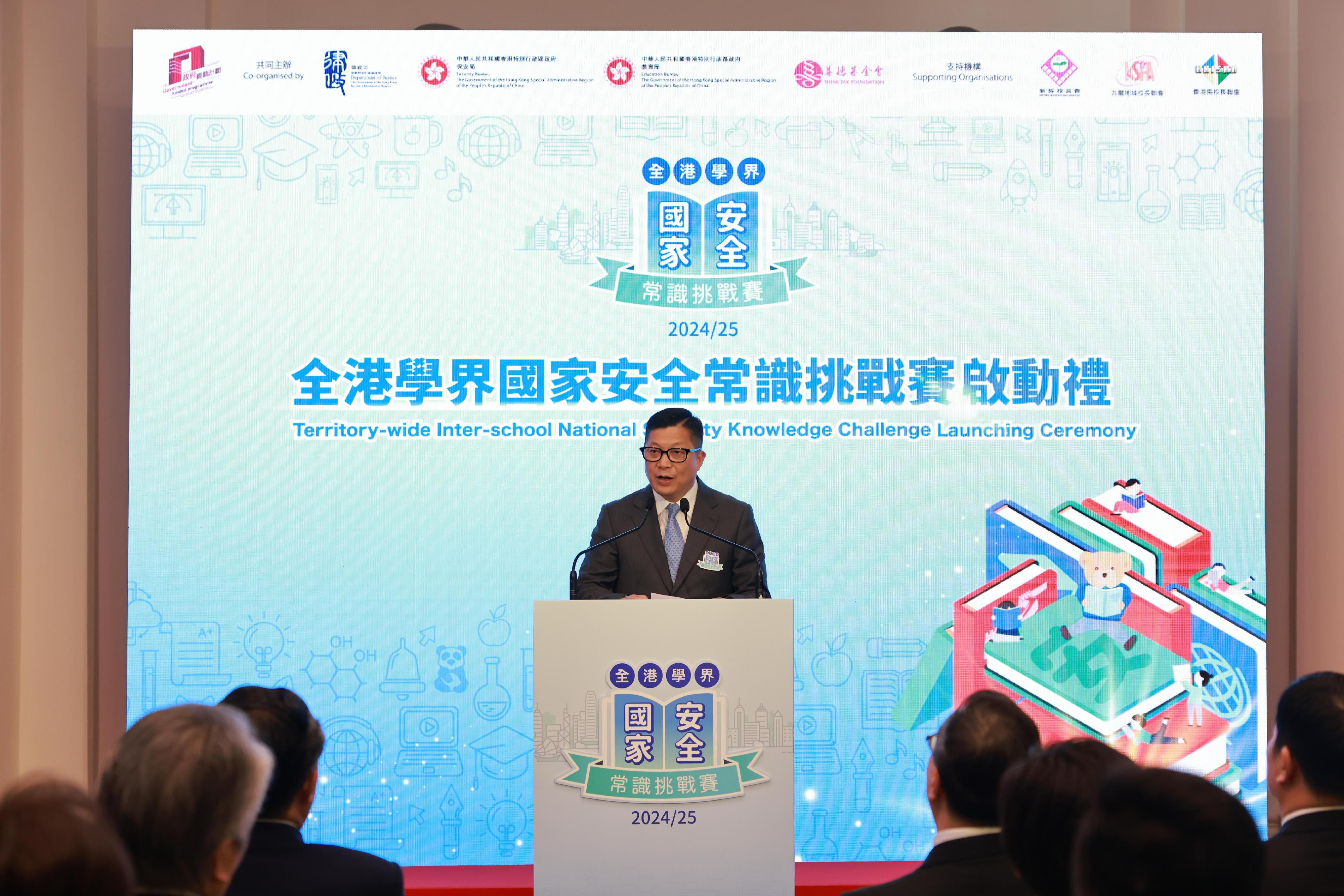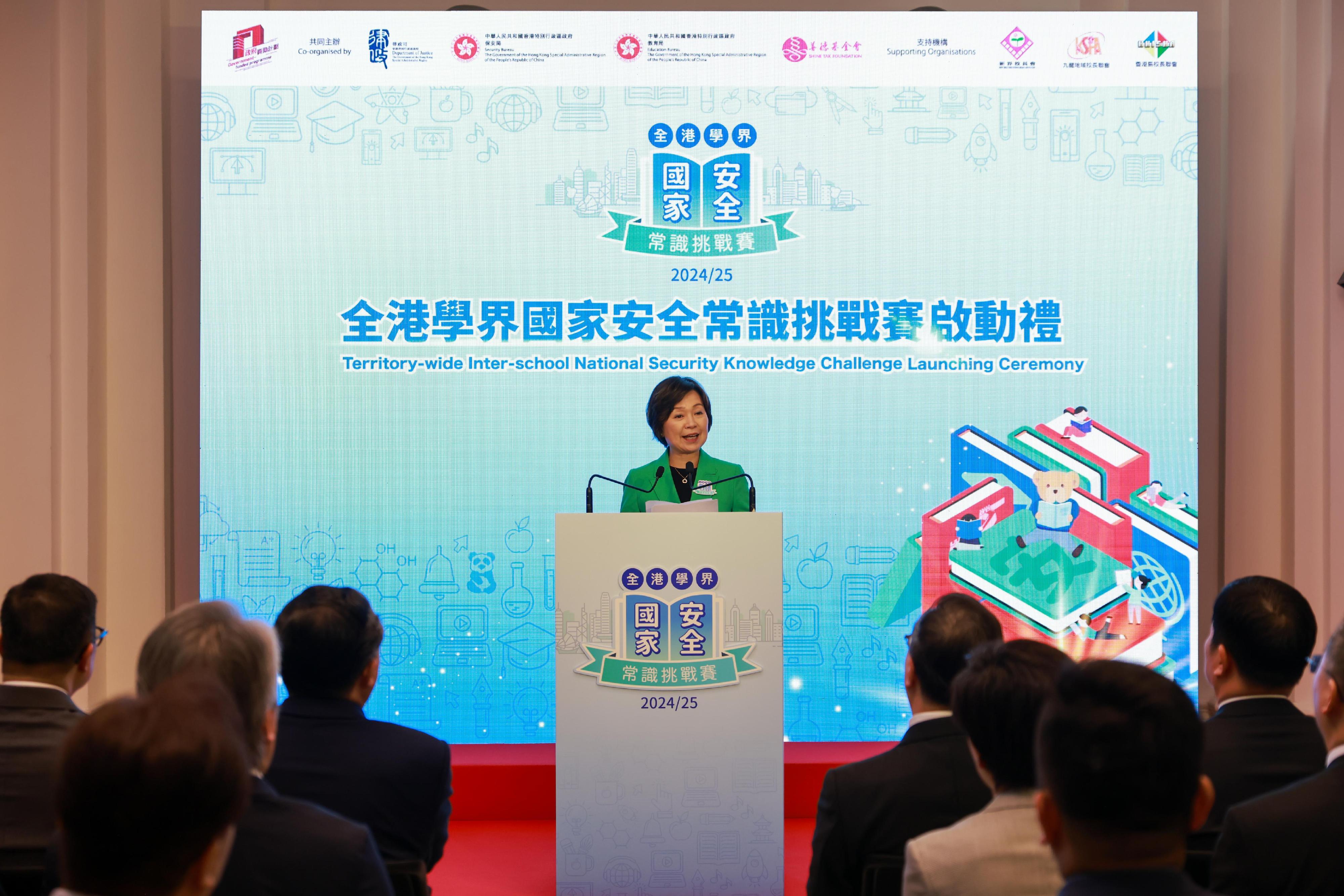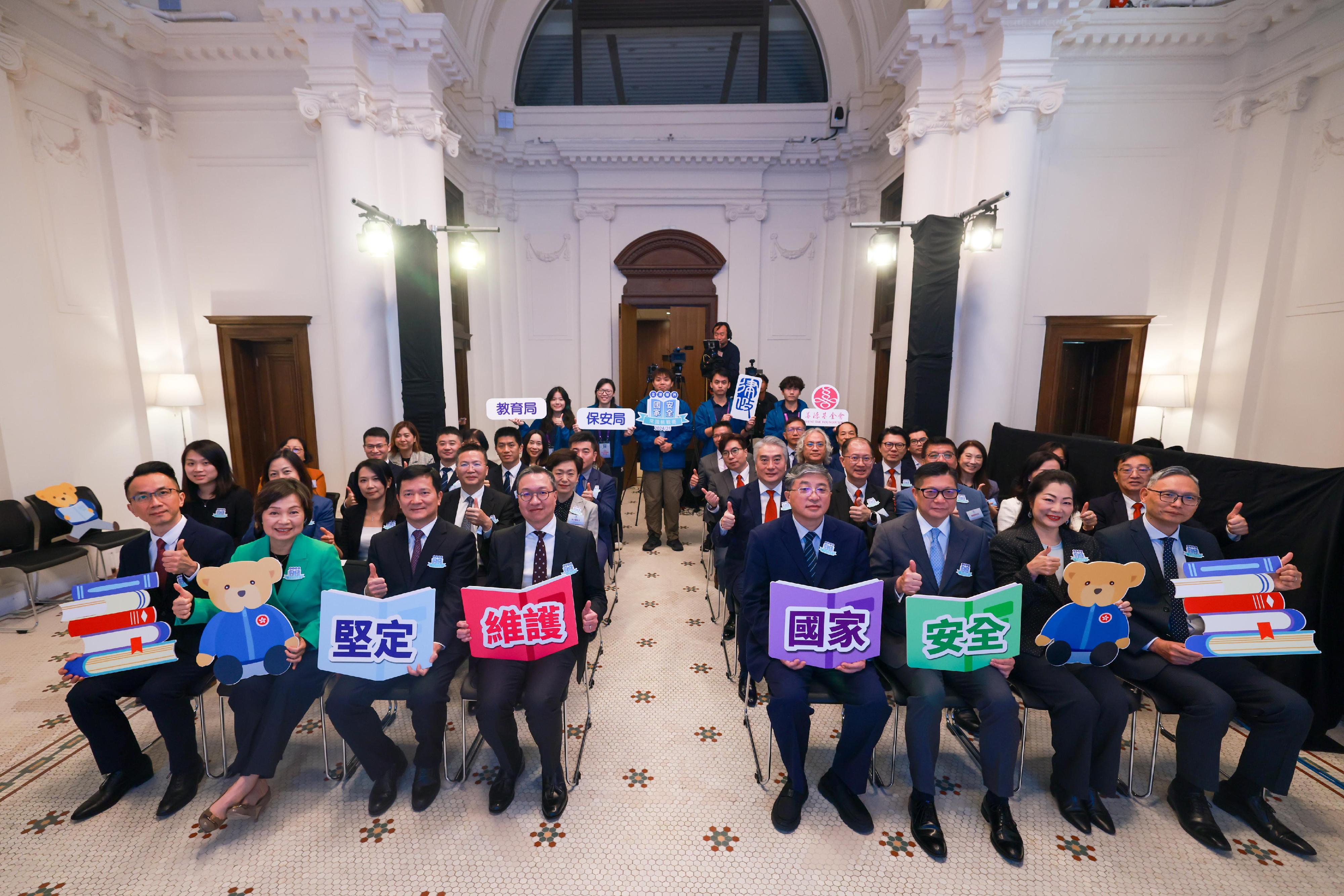Following is a question by Professor the Hon William Wong and a reply by the Secretary for Environment and Ecology, Mr Tse Chin-wan, in the Legislative Council today (December 4):
Question:
This year’s Policy Address has proposed to continue to take forward the Blueprint for the Sustainable Development of Agriculture and Fisheries, which includes the development of deep sea mariculture at Wong Chuk Kok Hoi and Mirs Bay new fish culture zones and the promotion of leisure farming and fisheries. There is also a plan for the Mirs Bay/Yan Chau Tong Eco-recreation/tourism Circle in the Northern Metropolis. Besides, the Shenzhen Ocean Development Plan (2023-2035) published by Shenzhen last year has proposed coordination between Shenzhen and Hong Kong on the protection and utilisation of natural resources around Mirs Bay sea areas, islands, etc. There are views that great opportunities are present for Shenzhen-Hong Kong co-operation in promoting the marine economy in Mirs Bay, alongside the potential for building a blue granary there. In this connection, will the Government inform this Council:
(1) whether it has discussed with the Shenzhen Municipal Government co-management and co-operation on marine ecology conservation, modernised aquaculture and scientific research, etc. in relation to fishery development in Mirs Bay; if so, of the details; if not, whether it will engage in discussion with the Shenzhen Municipal Government on the development of Mirs Bay into a blue granary;
(2) regarding the establishment of the Mirs Bay/Yan Chau Tong Eco-recreation/tourism Circle, of the progress of co-operation between the Hong Kong Special Administrative Region Government and the Shenzhen Municipal Government on tourism, bioindustries, marine industries, etc.; and
(3) whether it has promoted mutual co-operation among industries, scientific research institutions and higher education institutions in Shenzhen and Hong Kong in areas such as basic marine scientific research and higher education; if so, of the details; if not, how the Government will foster such co-operation?
Reply:
President,
Having consulted the Culture, Sports and Tourism Bureau, the Innovation, Technology and Industry Bureau, and the Education Bureau, my reply to the question of Professor the Hon William Wong is as follows:
(1) The Government has been working closely with Shenzhen on the conservation of the marine ecology of Mirs Bay and the development of the new fish culture zone in the area, with a view to creating synergy between the development in Hong Kong and Shenzhen.
For the conservation of marine ecology, Hong Kong and Shenzhen have maintained communication and co-operation through the Mirs Bay and Deep Bay (Shenzhen Bay) Areas Environmental Management Special Panel that is jointly established by the Environmental Protection Department and the Ecology Environment Bureau of Shenzhen Municipality. The collaboration focuses on protecting the water environment of Mirs Bay and achieving the goals for sustainable development through communication and co-operation on the provision of sewage collection system and enhancement of sewage treatment facilities. With the concerted efforts of both governments, the water quality of Mirs Bay has been good. This is crucial for the conservation of marine ecology, particularly for hard corals in the northeastern waters of Hong Kong, including Kat O, Yan Chau Tong, Lai Chi Wo, and Tung Ping Chau.
To promote deep sea mariculture, the Agriculture, Fisheries and Conservation Department (AFCD) has designated a new fish culture zone at Mirs Bay with an area of approximately 400 hectares, encouraging fishermen to use steel truss cages or other types of deep-sea cages at the new fish culture zone, in order to increase mariculture production and value by adopting a modernised mode of operation. Meanwhile, the AFCD has maintained a close working relationship with Shenzhen Municipality and trade organisations in fisheries development through regular communication and visits with, for instance, the Ocean Development Bureau of Shenzhen Municipality, Hong Kong and Macao Floating Fishermen Business Office as well as Hong Kong and Macao Floating Fishermen Association of the Shenzhen Municipality, and actively promoting technical exchanges and communications between fishermen in Hong Kong and Shenzhen through organising various training courses or visits.
Hong Kong and Shenzhen also collaborate to enhance aquatic biodiversity and fisheries resources. For instance, for “National Fish Releasing Day” next year, Hong Kong and Shenzhen are planning to conduct a joint-restocking activity at the neighboring waters in Mirs Bay. We will continue to deepen our co-operation with Shenzhen in relation to the conservation of aquatic biodiversity and fisheries resources.
In addition, the AFCD worked with Shenzhen Institute of Guangdong Ocean University to explore technical collaborations on aquaculture technology and conducted reciprocal visits and exchanges. The AFCD, Hong Kong Fishermen Consortium and trade representatives made a visit to Shenzhen Institute of Guangdong Ocean University in January 2024 and conducted discussion sessions on topics including breeding and trading of marine life and marine ranches. They also visited the breeding base of the Institute and the Mirs Bay National Marine Ranch Workstation to explore the direction of future co-operation.
(2) In respect of tourism, through the Working Group for Sha Tau Kok Co-operation Zone jointly established by the Hong Kong and Shenzhen governments under the Task Force for Collaboration on the Northern Metropolis Development Strategy, the Culture, Sports and Tourism Bureau has indicated that, under the principles of complementarity and mutual benefits, it will work together with the Shenzhen side to promote cultural tourism co-operation in Sha Tau Kok based on the principles of “low density, high quality” and through enriching its historical and cultural elements, thereby fostering the tourism development in Sha Tau Kok.
Leveraging the opportunities brought by the designation of Robin’s Nest Country Park in March this year as the 25th country park in Hong Kong by the Environment and Ecology Bureau, the AFCD and the Municipal Planning and Natural Resources Bureau of Shenzhen have signed the Cooperative Framework Agreement for the Enhancement of Wutong Mountain (Shenzhen) – Robin’s Nest (Hong Kong) Ecological Corridor, to cooperatively strengthen the protection of natural habitats with high ecological values at the boundary of two places. Besides, the Countryside Conservation Office will promote new in-depth eco-tour experience by integrating culture characteristics of countryside villages, which includes the organisation of island hopping tour(s) under the theme of “Sound-Sight-Taste” at Kuk Po in Sha Tau Kok early next year to enhance public awareness of nature conservation, facilitate urban-rural symbiosis and generate economic benefits.
(3) The Government attaches great importance to scientific research exchanges and has been enhancing Hong Kong’s innovation and technology ecosystem for different technology areas (including marine technology) through a number of measures in terms of funding, support for start-ups, infrastructure and talents.
As indicated by the Innovation, Technology and Industry Bureau, there are 16 State Key Laboratories (SKL) in Hong Kong, one of which is SKL of Marine Pollution. The Laboratory is committed to collaborating with scientific research teams in the Mainland and other regions to conduct innovative research, particularly in the areas of pollution monitoring and control, environmental risk assessment, ecosystem response to stressors and ecological restoration, and to contribute to the protection and management of the marine environment and generate positive societal impact. The Innovation and Technology Commission also provides funding through the Technology Start-up Support Scheme for Universities (TSSSU) to six designated universities to support their teams in starting technology businesses and commercialising their research and development (R&D) results. Some of the TSSSU-funded start-ups engage in R&D projects on marine technology and undertake part of the R&D activities in the Mainland. In addition, the public R&D Centres will continue to drive technological development in different areas (including marine technology) through interactions with the Mainland, especially the Mainland cities of the Greater Bay Area.
On education, the Education Bureau has indicated that the University Grants Committee-funded universities have all along been able to flexibly offer different programmes and conduct researches having regard to their roles and positioning as well as market demands. These universities have offered marine science-related programmes in recent years to nurture more marine science and research talents. In addition, the Government endeavours to drive, facilitate and encourage higher education co-operation between Hong Kong and the Mainland, especially on scientific research collaborations, with a view to complementing each other’s advantages and proactively leveraging Hong Kong’s function as an international innovation and technology centre.
Thank you. read more


